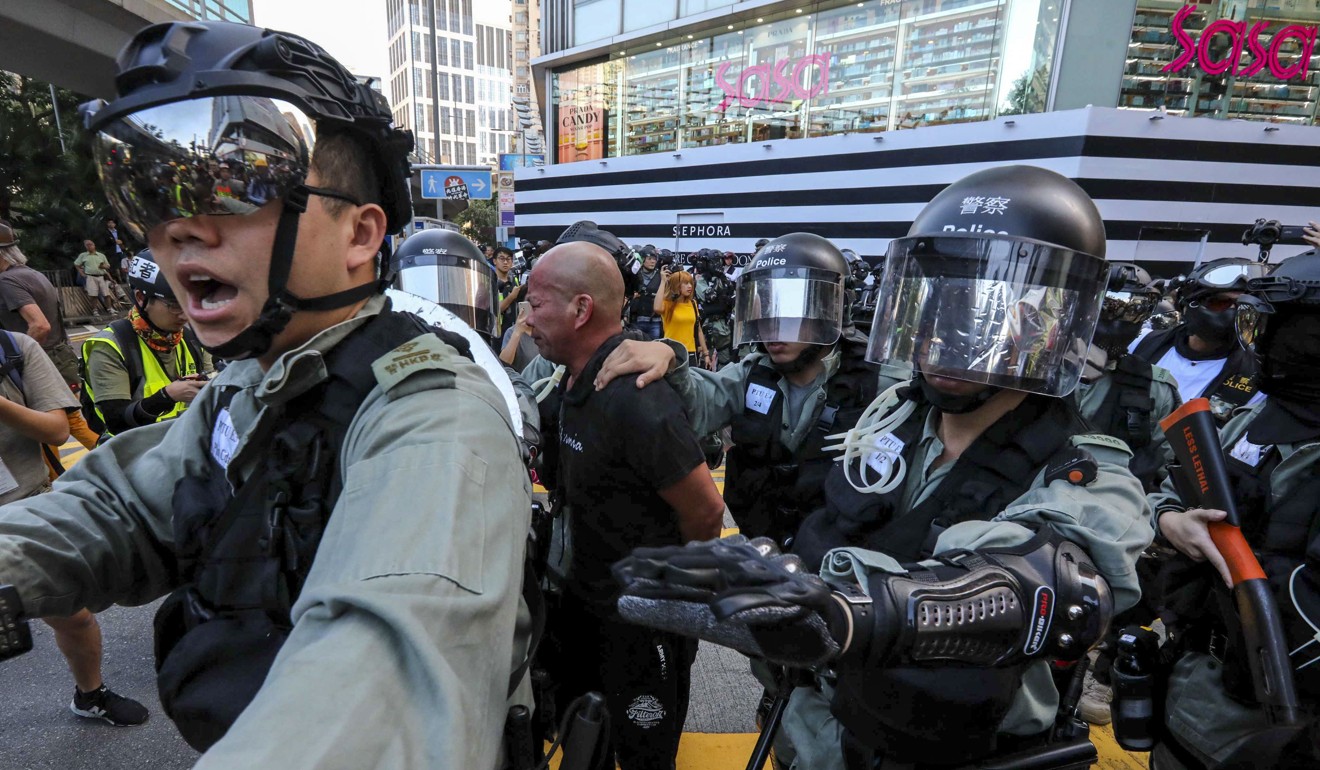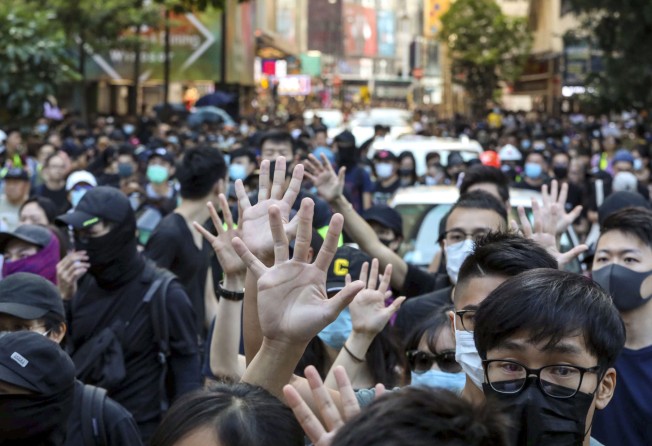
Pepper spray and body searches as anti-government protesters defy Hong Kong rally ban by holding ‘election hustings’
- Organiser Ventus Lau had application for event at Victoria Park calling for international aid rejected by police
- In response some 100 pro-democracy candidates are to meet potential voters in Causeway Bay

Anti-government protesters in Hong Kong returned to Victoria Park on Saturday afternoon to hold “election hustings”, after police rejected an application for a rally at the same site.
Some 100 pro-democracy candidates for this month’s district council elections defied a warning that any large gathering would be illegal, and met potential voters at the protest hotspot in Causeway Bay.
The hustings, alongside three authorised rallies in Central and Tsim Sha Tsui, mark the 22nd straight weekend of civil unrest triggered by the now-withdrawn extradition bill.
An hour before the rally started, dozens of riot police were seen standing guard at different spots outside Victoria Park. Some of them conducted body searches on protesters wearing masks.

At 2.45pm, outside Windsor House, police used pepper spray on a man who was shouting at them when walking towards the park. Officers raised a blue flag, warning people they considered it to be an illegal assembly, and would use force if necessary.
In a move stepping up the crackdown on protesters’ plans, the government secured on Thursday a court injunction to ban incitement of violence online.
Simon Tsang, a 24-year-old IT worker, said he was worried the injunction on LIHKG and Telegram, the two main channels of communication for protesters, would lead to lower turnouts at future rallies as people had no way to access information.
“But we will probably find a way, perhaps switch to using WhatsApp, although it will require people to register with their phone numbers and the police can go to phone companies and ask for a list of numbers,” he said.
Tsang said he was simply responding to calls to gather at Victoria Park rather than to meet election candidates.
Chan, a secretary in her late 50s, said the government was testing the water and would probably look to expand the scope of the current injunction on Telegram and LIHKG.
“We are not worried, but this is unacceptable, they are turning Hong Kong into China,” she said.
Under the latest plan laid out by activist Ventus Lau Wing-hong, whose bid for a rally calling for international aid was rejected, election candidates should meet with potential voters but with turnout limited to no more than 50 participants each.
That number of attendees means organisers would not need police approval under the Public Order Ordinance.
Police earlier decided the rally Lau had initially proposed to hold at the park, with an estimated attendance of 10,000 people, would represent a threat to public order and safety.
The force said if the so-called hustings shared the same purpose as the banned event, they would still be considered illegal, and the force would take action if there was any breach of the peace.
The ban on high-profile pro-democracy activist Joshua Wong Chi-fung from running in the district council elections next month has also inflamed tensions between protesters and the government.
Hong Kong has been in the grip of often-violent protests since June, roused by the ill-fated bill, which would have allowed for extradition to mainland China.
The demonstrations have developed into a wider anti-government movement with demands including restarting the city’s stalled political reform process.